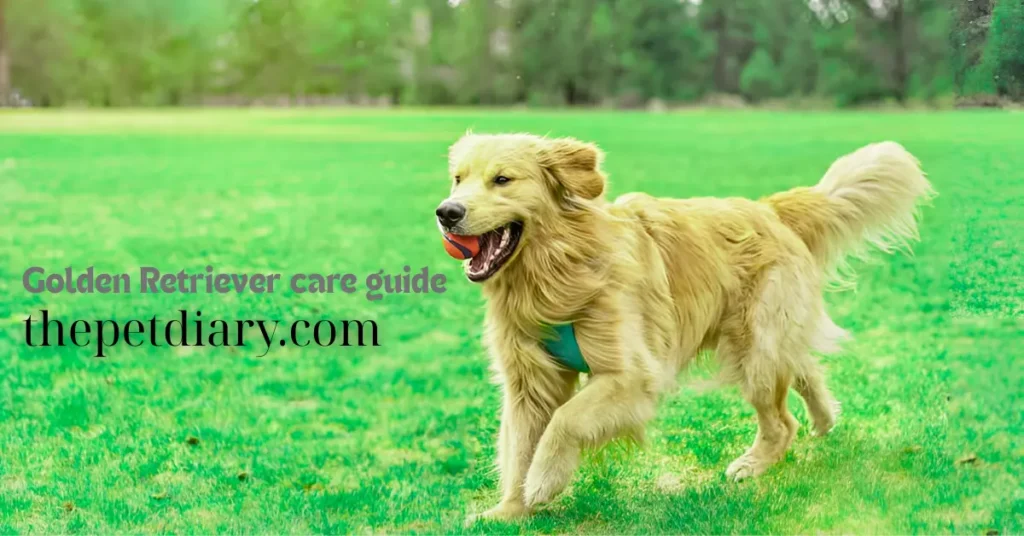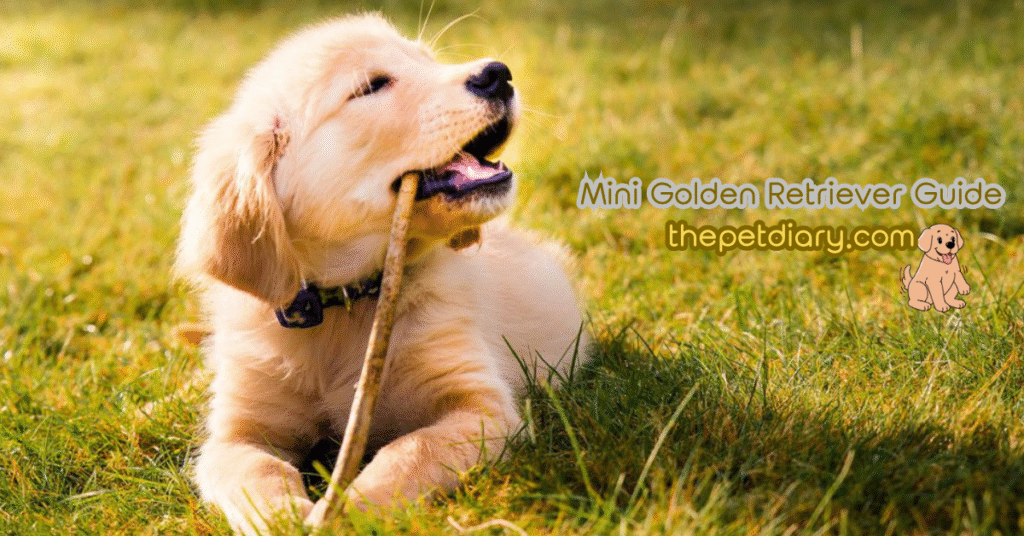Goldendoodle Puppies
A Golden Doodle is a mix between a Golden Retriever and a Poodle, commonly known as a Goldendoodle, little Golden Doodle, or miniature Goldendoodle. Golden Doodles get along with everyone and are amiable friends. Because of their temperament, they usually get along well with children and other household pets. They are bright, gregarious, and, with the right training, can be very obedient. One of our most well-liked breeds is the little golden doodle, and many new owners seek helpful Goldendoodle puppy care tips to ensure these pups grow into happy, healthy companions. All year long, we also have litters of Micro Mini Goldendoodles.
At Crockett Doodles, we specialize in F1b Goldendoodle puppies, which result from breeding a first-generation Goldendoodle back to a Poodle. By pairing them with a Standard, Miniature, or Toy Poodle, we increase the likelihood of producing puppies with non-shedding coats. This is particularly advantageous for families with allergies.
History and Origin
The Goldendoodle is a relatively contemporary breed, having been originally introduced in the late 20th century. In the 1990s, the breed was first purposefully created in Australia and North America. The main objective was to produce a hypoallergenic guide dog that would combine the Golden Retriever’s amiable, trainable temperament with the Poodle’s intelligence and low-shedding coat.
The idea of breeding hybrids for certain uses is not new. For similar reasons, Labradoodles mix between Labrador Retrievers and Poodles, were created in the 1980s. The Goldendoodle was created as a result of breeders experimenting with different Poodle crosses after Labradoodles proved successful in producing dogs with desired qualities.
Generations: What Are They?
Knowing the different Goldendoodle generations might help prospective owners make smarter decisions. The term “generation” refers to the Goldendoodle’s background and the percentage of Poodle and Golden Retriever genes it possesses. The most prevalent generations are:
First-generation Formula One: A Golden Retriever and a purebred Poodle are crossed to create Goldendoodles. Usually, their genetic divide is 50/50.
F1B Goldendoodles are a 75% Poodle and 25% Golden Retriever mix produced by backcrossing an F1 Goldendoodle with a Poodle. This generation’s coats are often curlier and hypoallergenic. Goldendoodle puppy care.
F2b Goldendoodles: A cross between two F1 Goldendoodles from the second generation. Their disposition and coat can differ greatly.
>Crosses outside of the F2 generation, multi-generational goldendoodles are frequently bred to improve particular characteristics like coat type and temperament consistency.
Goldendoodles in Popular Culture
Goldendoodles have become well-known in popular culture, winning over both public figures and celebrities. Well-known for their friendly nature and charming appearance, Goldendoodles are often featured on television shows, in ads, and on social media feeds. Their widespread appeal has cemented their place as a cherished breed, garnering them respect and acclaim on a variety of media channels. Goldendoodles continue to captivate audiences throughout the world with their charming appearance and affectionate temperament, whether they are seen cuddling with well-known people or appearing in viral videos.
Physical Characteristics or Goldendoodle puppy care
Poodle parents have a major influence on whether goldendoodles are toy, miniature, or standard in size. Goldendoodles are generally divided into three sizes:
The typical weight range for standard goldendoodles is 50 to 90 pounds.
Miniature Goldendoodles: 25 to 50 pounds in weight.
Toy Goldendoodles often weigh less than twenty-five pounds.
The Goldendoodle’s coat can be straight, curly, or wavy, and it sheds to different degrees. Goldendoodles inherit the hypoallergenic coat of the Poodle, which is why people with allergies often pick them. A wide range of colors is available for coats, including cream, apricot, gold, red, chocolate, and black. Some Goldendoodles even have distinctive patterns or numerous colors.
How do Goldendoodles integrate with families?
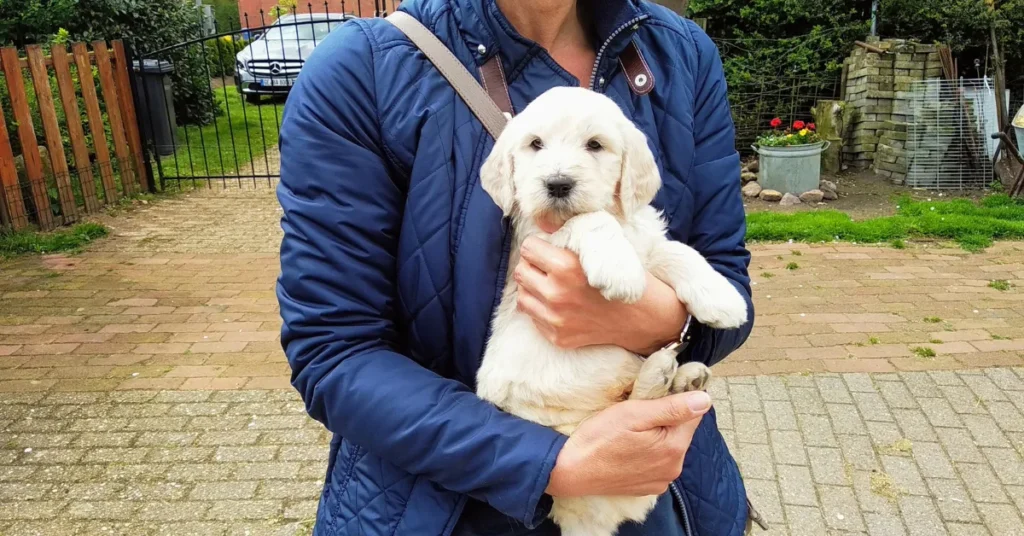
When allowed to actively engage in everyday activities, goldendoodles thrive in family environments. They are ready to participate in all facets of family life because of their loving and outgoing personalities. They form strong bonds with their human friends and enjoy socializing, whether it is through play, outdoor activities, or just being there when everyday tasks are completed. However, golden doodle mini may experience stress and anxiety if excluded or isolated from these interactions. It’s crucial to involve them in family activities and offer them lots of social interaction to guarantee their well-being. They feel safe, content, and a vital member of the family as a result of this integration.
Friendly and Affectionate
The amiable and kind nature of Goldendoodles is one of its best-known characteristics. They have a reputation for being excellent family dogs who get along with kids, other pets, and even strangers. Because of their kind and cuddly personalities, they make excellent therapy dogs. They also like being around people and getting attention.
Easy to Train or Goldendoodle puppy care
Due to their high IQ and desire to please, goldendoodle puppy training is very easy. Positive reinforcement methods like praise, treats, and playing are favorably received by them. Because of this, they are an excellent option for families with young children who wish to participate in training or for first-time dog owners.
Companion Dogs
Because of their devotion and affection, goldendoodles are frequently referred to as companion dogs. They do poorly when left alone for extended periods and flourish when they are a part of a family. Make sure your Golden doodle has lots of toys, puzzles, or a furry friend to keep them occupied if you have a hectic schedule.
Highly Active or Goldendoodle puppy care
Because of their moderate to high level of energy, goldendoodles need frequent exercise to stay happy and healthy. Because they are a cross between two active breeds, be ready for playing and daily walks. Swimming, fetch, and other outside sports are also quite popular with them.
Health and Lifespan
Goldendoodles often live 10 to 15 years in good health. They may, however, be susceptible to certain health problems, just like any other breed. Common problems include allergies, hip and elbow dysplasia, and progressive retinal degeneration. A healthy food tailored to their requirements, frequent veterinary examinations, and adequate exercise are essential components of their care regimen to preserve their health. Owners can contribute to the longevity and general health of their cherished Goldendoodles by taking proactive measures to address certain health issues.
Grooming and Goldendoodle puppy care
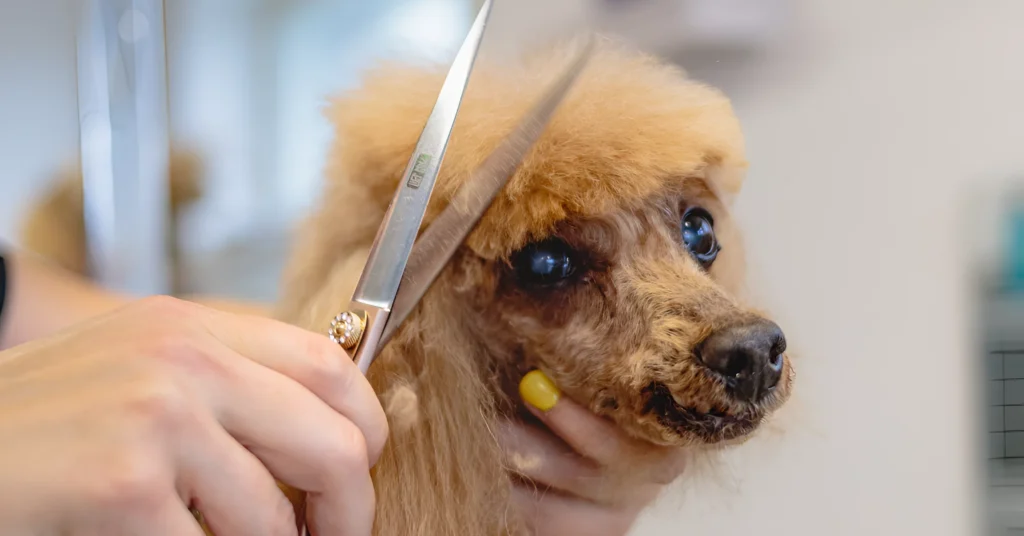
Grooming and maintenance are crucial to preserving the Goldendoodle’s appealing look and overall health. Goldendoodles, who are known for having low hair loss, need regular brushing to avoid matting and knots. They may require professional grooming every 6 to 8 weeks and multiple weekly brushings, depending on the sort of coat they have. Routine care also includes dental cleanliness to avoid dental problems, nail cutting to preserve the best possible foot health, and routine ear cleaning to avoid infections. By giving these grooming and maintenance procedures priority, owners can make sure their Goldendoodles stay happy, healthy, and in top condition..
Mental Stimulation
Goldendoodles require cerebral stimulation in addition to their physical. Interactive games, puzzle toys, and obedience training may all be included in their daily routine to keep their minds engaged and sharp. In addition to avoiding boredom, these mental exercises offer beneficial chances for education and problem-solving. By providing a healthy mix of mental and physical activity, you can meet your Goldendoodle’s cognitive needs and enhance their general pleasure and well-being.
What are the nutritional requirements for Goldendoodles?
A Goldendoodle’s health and well-being depend heavily on eating a balanced diet. It is advised to use premium commercial dog food that is appropriate for the dog’s age, size, and level of exercise. Here are some general dietary guidelines:
- Puppy Stage: A meal high in lipids and protein is necessary for puppies’ growth and development.
- Adult Stage: To maintain their energy levels and general health, adult Goldendoodles require a diet that is well-balanced and includes a decent combination of protein, lipids, and carbs.
- Senior Stage: Senior dogs may require a diet tailored to their changing metabolism and potential health issues, such as joint support or weight management formulas.
Exercise and Training
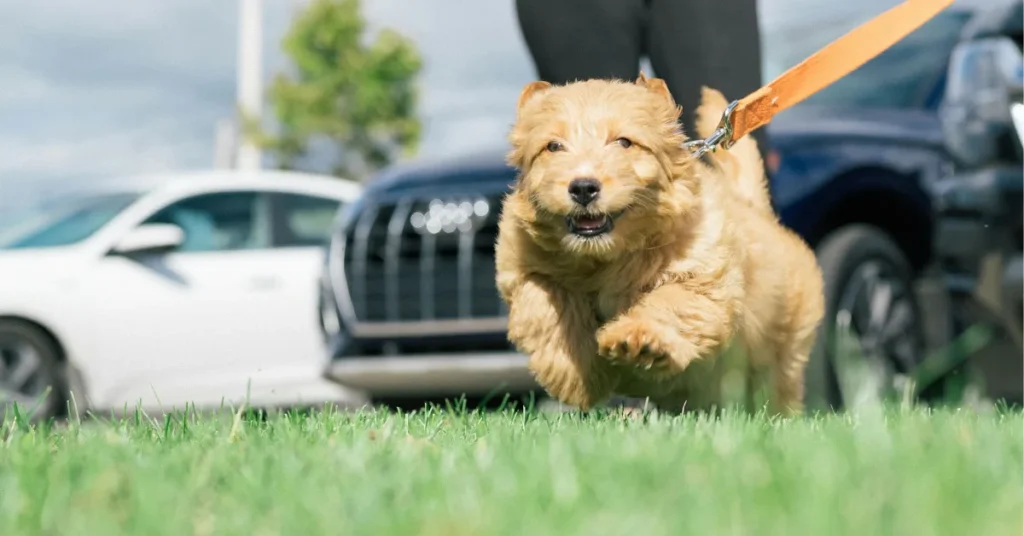
Goldendoodles need daily exercise to preserve their physical and mental well-being since they are inherently active. Their regimen must include daily walks, stimulating playtime, and mental stimulation from interactive toy play or training exercises. Goldendoodles thrive in a variety of training activities, like as obedience training, agility classes, and even service or therapeutic work, by utilizing their intellect and desire to please. Through consistent exercise and training, goldendoodle owners may ensure that their companions are content, healthy, and happy while also preserving a close bond with their dogs. their daily routine.
Goldendoodles as Therapy and Service Dogs
Goldendoodles are perfect for therapy and service jobs because of their remarkable intellect, trainability, and kind disposition. Numerous Goldendoodles provide comfort and company to people in a variety of situations by working as therapy dogs in hospitals, assisted living facilities, and educational organizations. They are also excellent support dogs for people with disabilities because of their natural intuition and ability to develop strong bonds with people. Goldendoodles play vital roles in improving the health and well-being of people they serve by utilizing their innate talents and friendly dispositions.
Living Conditions
Goldendoodles exhibit exceptional versatility in a variety of living environments, ranging from comfortable apartments to large homes with lots of outdoor space. Their ideal living situation, however, is one in which they are frequently interacting with people and are not left alone for long periods. Goldendoodles like socializing and mental stimulation since they are prone to separation anxiety when left alone for extended periods.
Goldendoodle owners must give their pets enough mental and physical stimulation through interactive play, exercise, and stimulating activities to guarantee their happiness and avoid unfavorable behaviors brought on by boredom. Owners can establish a happy and gratifying living space for their Goldendoodles and enhance their general well-being by creating an environment that is rich in stimulation and friendship.
Seasonal Care/ Goldendoodle puppy care
For your Goldendoodle’s well-being, you must adapt their care regimen to seasonal variations. To avoid sweating during the sweltering summer months, make sure there is enough cover and access to fresh water. Avoid hot pavement that could burn their paws and only engage in outdoor activities during the cooler hours of the day. To keep them warm on walks during cooler months, think about getting them a coat or sweater. Modify their workout routine to account for fewer daylight hours and bad weather, and use puzzle toys or indoor play to keep their minds active.
Additionally, attend to their maintenance requirements, such as applying pet-safe moisturizers to avoid dry skin in the winter or brushing them more frequently to remove extra fur during shedding seasons. Being proactive and modifying your Goldendoodle’s care regimen to suit seasonal variations will help you keep them content, comfortable, and healthy all year long.
Low-Shedding Coat and Goldendoodle puppy care
The hypoallergenic coat of Goldendoodles is one of the primary factors contributing to their increased popularity. They are an excellent option for anyone with allergies because of their low-shedding coat, which generates less dander due to their Poodle ancestry. It’s crucial to remember that each dog is unique, and some people may still experience allergic reactions to Goldendoodles.
Do Goldendoodles bark often?
Goldendoodles generally do not bark excessively, though their vocalization varies by dog. Some Goldendoodles bark more than others, but proper training efficiently controls any barking tendencies. Teaching Goldendoodles when to bark and when to keep silent requires early socialization and positive reinforcement methods. Owners may make sure their Goldendoodles grow up to be calm, well-mannered dogs who are less inclined to bark excessively in a variety of settings by addressing their barking habits early on.
Behavior with Strangers
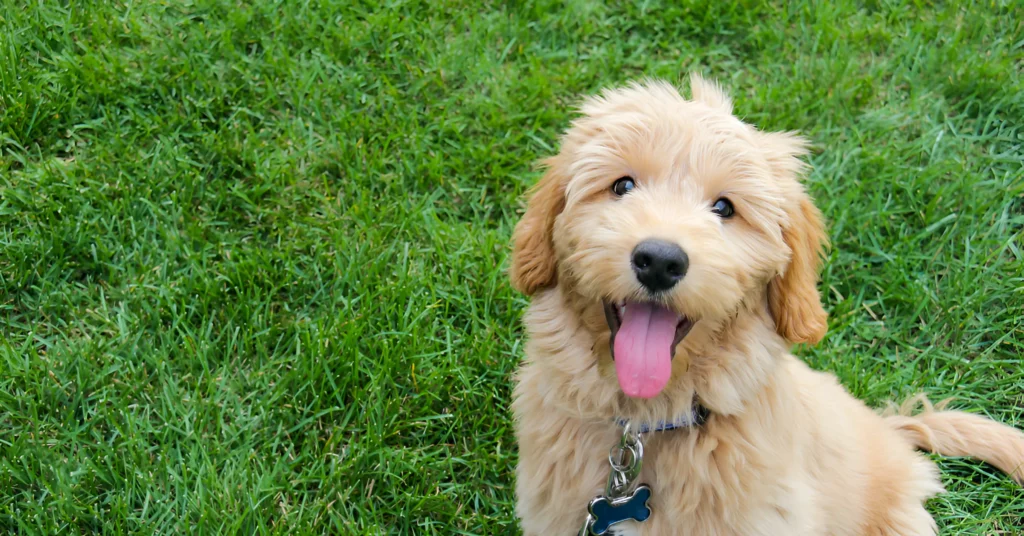
Goldendoodles make excellent companions while meeting new people because they are generally gregarious and personable. Because of their innately gregarious nature, they typically feel at ease and welcome in unfamiliar settings. However, early socialization is essential to ensuring Goldendoodles continue to exhibit this beneficial behavior. Throughout their early months, exposing children to a variety of people, situations, and experiences fosters their self-esteem and manners. They will become well-adjusted individuals who get along with strangers if they receive positive reinforcement and are regularly exposed to a variety of social situations. This early preparation guarantees that Goldendoodles will develop into self-assured and outgoing companions.
Travel Compatibility & Goldendoodle puppy care
Goldendoodles adapt easily and travel well thanks to their laid-back nature. Introduce them to car rides early to ensure a comfortable journey. Take short trips, use positive reinforcement, and increase travel time gradually to help them adjust. To make journeys more comfortable and safe, provide a cushioned seat or a secured box. By stopping frequently for exercise, water, and potty breaks, you can keep kids content and healthy while traveling. With proper preparation, Goldendoodles enjoy and adjust quickly to vacation experiences.
Why Choose a Goldendoodle?
Goldendoodles are a popular choice for families thanks to their loving nature, intelligence, and easy trainability. They form strong bonds with humans of all ages, children, and other pets. With their Golden Retriever and Poodle heritage, they make excellent companions, therapy dogs, and beloved family pets, fitting easily into many lifestyles.
Conclusion of Goldendoodle puppy care
If you’re searching for a dog that is clever, loving, and sociable, Goldendoodles are a great option for both people and families. When given enough love, care, and exercise, they thrive in a variety of living conditions. Make sure you can provide a Goldendoodle the best care possible by learning about and comprehending their needs before bringing them into your house. Thus, a Goldendoodle can be the ideal companion for you if you’re thinking about getting a pet. Happy dog parenting! The goal of Crockett Doodles is to match families with Doodle puppies that are compatible with their needs. If you want assistance in differentiating between the traits of a Labradoodle and a Goldendoodle, make sure to explore Goldendoodle puppy care.
FAQS of Goldendoodle puppy care:
❓ Are Goldendoodle puppies good family dogs?
✅ Yes, Goldendoodles are affectionate, playful, and gentle, making them excellent companions for families with children and other pets.
❓ How big do Goldendoodle puppies get?
✅ Their size depends on the Poodle parent. Standard Goldendoodles grow 50–90 lbs, Mini Goldendoodles 25–50 lbs, and toy golden doodles under 25 lbs.
❓ Do Goldendoodle puppies shed?
✅ Many Goldendoodles inherit the Poodle’s low-shedding coat, but shedding varies. Regular grooming helps reduce hair and prevent matting.
❓ How often should I groom a Goldendoodle puppy?
✅ Brush several times a week to prevent tangles and take them for professional grooming every 6–8 weeks.
❓ Are Goldendoodle puppies easy to train?
✅ Yes, they are intelligent and eager to please. With positive reinforcement, Goldendoodles learn quickly and enjoy training.

